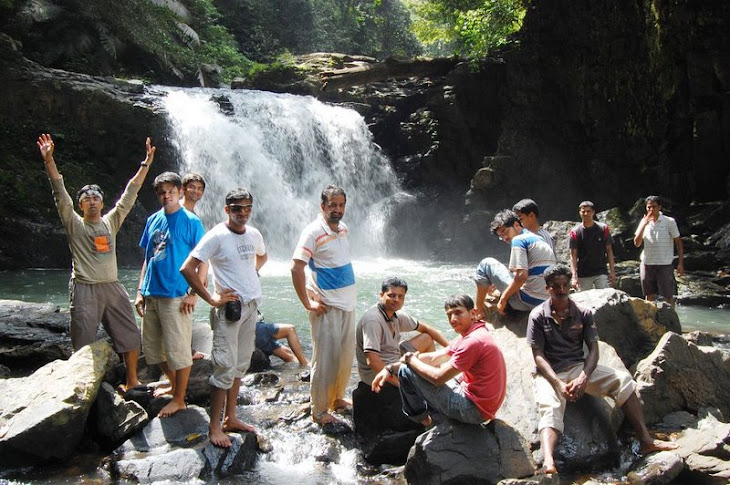FOREST FIRE
Forest fire causes imbalances in nature and endangers biodiversity by reducing fauna and floral wealth. Traditional methods of fire prevention are not proving effective and it is now essential to raise public awareness on the matter, particularly among those people who live close to or in forested areas.
Forest fire causes imbalances in nature and endangers biodiversity by reducing fauna and floral wealth. Traditional methods of fire prevention are not proving effective and it is now essential to raise public awareness on the matter, particularly among those people who live close to or in forested areas.
CAUSES OF FOREST FIRE
Traditionally
Indian forests have been affected by fires. The menace has been
aggravated with rising human and cattle population and the consequent
increase in demand for forest products by individuals and communities.
Causes of forest fires can be divided into two broad categories:
environmental (which are beyond control) and human related (which are
controllable).
1.
Environmental causes are largely related to climatic conditions such as
temperature, wind speed and direction, level of moisture in soil and
atmosphere and duration of dry spells. Other natural causes are the
friction of bamboos swaying due to high wind velocity and rolling stones
that result in sparks setting off fires in highly inflammable leaf
litter on the forest floor.
2.
Human related causes result from human activity as well as methods of
forest management. These can be intentional or unintentional, for
example
•
Grazers and gatherers of various forest products starting small fires
to obtain good grazing grass as well as to facilitate gathering of minor
forest produce like flowers of Madhuca indica and leaves of Diospyros
melanoxylon
•
The centuries old practice of shifting cultivation (especially in the
North-Eastern region of India and in parts of the States of Orissa and
Andhra Pradesh).
• the use of fires by villagers to ward off wild animals
• fires lit intentionally by people living around forests for recreation
• fires started accidentally by careless visitors to forests who discard cigarette butts.
The
causes of forest fire have been increasing rapidly. The problem has
been accentuated by the growing human and cattle population. People
enter forests ever more frequently to graze cattle, collect fuel wood,
timber and other minor forest produce. It has been estimated that 90% of
forest fires in India are man-made.
EFFECT OF FOREST FIRE
Fires are a major cause of forest degradation and have wide ranging adverse ecological, economic and social impacts, including:
- Loss of valuable timber resources,
- Degradation of catchment areas,
- Loss of biodiversity and extinction of plants and animals,
- Loss of wildlife habitat and depletion of wildlife,
- Loss of natural regeneration and reduction in forest cover,
- Global warming,
- Loss of carbon sink resource and increase in percentage of CO2 in atmosphere,
- Change in the micro climate of the area with unhealthy living conditions,
- Soil erosion affecting productivity of soils and production,
- Ozone layer depletion,
- Health problems leading to diseases,
- Loss of livelihood for tribal people and The rural poor, as approximately 300 million people are directly dependent upon collection of non-timber forest products from forest areas for their livelihood.
As responsible trekkers and nature lovers, we should work towards saving
our flora and fauna from wildfire. To start with, we plan to work with
kogar range of Sharavathi wildlife sanctuary. Idea is to audit the
preparedness for wildfire eventuality by department.
Fallowing is the Itinerary planned.
3-4-2015
- Start from Bangalore
- Reach Muppane nature camp. Freshen up and Have breakfast
- Briefing about wildfire survey by Kogar range RFO.
- Farm a subgroup and disperse.
- Return to base camp by evening, have high tea and campfire time
- Interactive session on various issues of forest conservation. session will be moderated by Mr.Imran Patel of Wildlife crime control bureau. This is autonomous body of National Tiger council.
- Have dinner and retire for the day
- Freshen up and have breakfast.
- various water sports activities like kayaking, canoeing and coracle ride in Sharavathi backwater
- Have lunch and visit Jogfalls.
- Start journey towards Bangalore.
Please check photos of last month volunteer work on muppane clean up activities
By Sampath
https://www.flickr.com/photos/
By Murali
https://plus.google.com/Regards
Sampath Kumar
Mob: 9663585591 / 9483694091
"Save Water, Save Energy and Save Earth for our next Generation"















